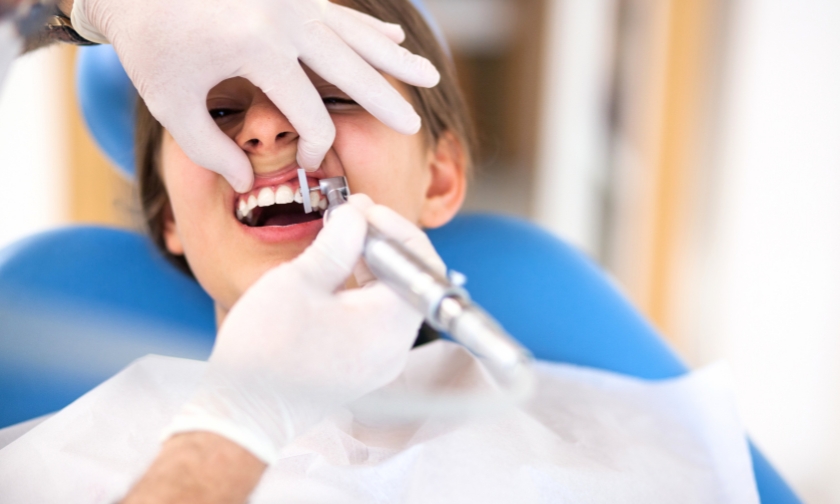943 Finchley Rd, London NW11 7PE
What to Do During a Dental Emergency: Quick Actions to Take

Dental emergencies can strike when you least expect them, often leaving you in pain or distress. Whether it’s a sudden toothache, a cracked tooth, or something more serious like a knocked-out tooth, knowing how to react quickly can make a world of difference.
The good news?
With the right steps, you can minimize damage and discomfort until you get the proper care.
This guide will walk you through exactly what to do during a dental emergency, helping you stay calm and take the right actions. We’ll cover common emergencies when to seek professional care, and even tips to prevent future issues.
Keep reading to ensure you’re prepared for anything that comes your way!
Types of Common Dental Emergencies and How to Identify Them
Dental emergencies come in various forms, and recognizing them early can help you take the right action. Here’s how to identify the most common emergencies and their severity:
- Knocked-out tooth: Look for complete tooth displacement. If the tooth is cleanly knocked out, it’s important to act fast.
- Tooth fracture/crack: Noticeable pain and visible cracks or chips indicate a fracture. These can range from minor to severe, depending on the break.
- Severe toothache: Persistent pain or sensitivity to hot, cold, or pressure signals an underlying issue, like an infection or cavity.
- Abscess/infection: Symptoms include swelling, redness, pain, and sometimes a fever. An abscess can quickly spread if left untreated, so address it promptly.
Immediate Actions to Take for Specific Dental Emergencies
When a dental emergency happens, knowing what to do can help prevent more serious damage. Here’s how to act quickly:
- Knocked-out tooth: Hold the tooth by the crown, not the root. If possible, rinse it gently and place it back in the socket or store it in milk. Visit an emergency dentist near you as soon as possible.
- Tooth fracture/crack: Rinse your mouth with warm water. Apply a cold compress to reduce swelling, and keep the fractured piece if available.
- Severe toothache: Rinse with warm salt water, and avoid placing aspirin directly on the tooth. Take over-the-counter pain relievers and visit a dentist ASAP.
- Abscess/infection: Rinse with salt water and avoid squeezing the abscess. If you feel feverish or the pain is severe, get medical help immediately.
How to Stay Calm and Focused During a Dental Emergency?
Dental emergencies can be stressful, but staying calm is essential. A clear mind allows you to act swiftly and prevent panic from hindering your response. Here’s how to stay focused:
- Breathe deeply: Take slow, deep breaths to calm your nerves. This helps reduce anxiety and keeps you focused on what you need to do.
- Stay organized: Know the immediate steps to take for each emergency type so you don’t waste time figuring things out in a panic.
- Ask for support: If you’re overwhelmed, don’t hesitate to ask someone nearby for help or guidance, especially when getting in touch with an emergency dentist near you.
- Keep your emergency kit ready: Having a dental first aid kit on hand can make it easier to handle the situation until you reach professional care.
When to Seek Professional Dental Care: Understanding Urgency Levels
Not every dental emergency requires an immediate trip to the dentist, but some situations do demand quick action. Understanding the urgency levels will help you decide when to contact a professional for your oral well-being.
- Immediate care: Any situation involving severe pain, bleeding, or a knocked-out tooth should be seen right away.
- Next-day care: If the issue isn’t causing significant pain or risk (like a minor chip), it can wait until the next available appointment.
- Urgency for infections: Infections and abscesses require urgent care to prevent them from spreading. Seek a dentist if you notice fever, swelling, or prolonged pain.
- Contact an emergency dentist near you: If you’re unsure about the urgency, it’s always best to contact an emergency dentist for advice.
A dental emergency can happen unexpectedly, but knowing how to handle it quickly and effectively can make all the difference. Stay calm, act fast, and always seek professional care when needed. By following these simple steps, you’ll be better prepared to manage any dental emergency and minimize the risk of long-term damage to your oral health.




